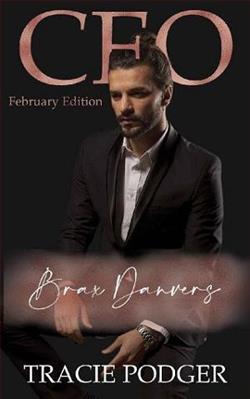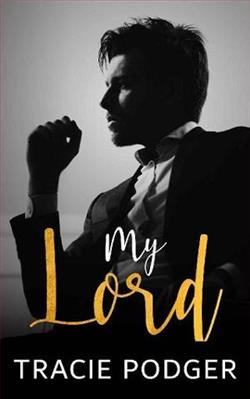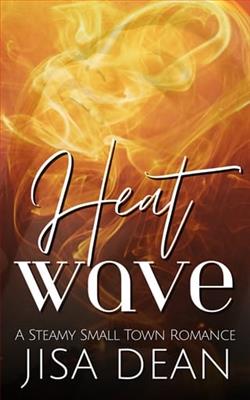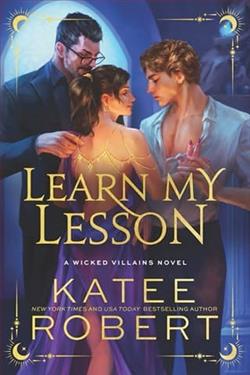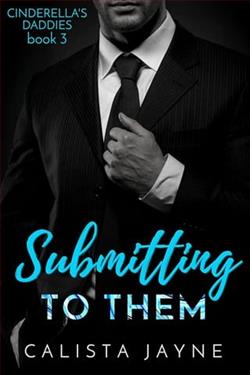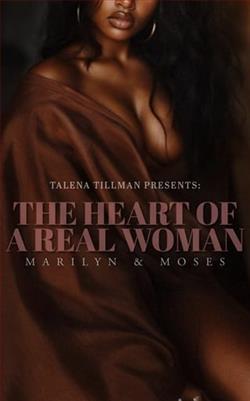Page 64 of Badlands
Skip closed his eyes again, but then the whirling started, right on schedule. He might just as well puke and get it over with: some desert creature could enjoy what had once been a delicious strip steak.
He fumbled to his knees and felt around unsuccessfully for his headlamp.What the hell. He exited the tent. The coals in the fire were collapsing, opening red gashes. There was no moon, and the ground was so dark, it was like standing in a pool of night. He couldn’t see his feet but he shuffled forward anyway, holding his arms out in front of him. The dark shape of a ponderosa was just visible, maybe fifty feet ahead. That would be far enough.
Groping and shuffling in the dark, he reached it just in time to retch once, then a second time. He stayed there, hunched over, for another minute or so. Then at last he straightened up, spat a few times, and wiped his mouth with his bandanna. God, he felt better. Amazing what a good puke could do.
A cool, piney air was drifting with the breeze and he took a long, deep breath. His head was clearing a little. He stood still, taking in the night air, feeling its salubrious effect on his drunken state. He didn’t want to go lie down again and start whirling. No—he’d stay here for a moment, just standing, just breathing. He could see the faint glow of the dying coals, a smudge of red in the sea of black. It looked inviting and he shivered a little, feelingthe edge of cold. Sliding into the sleeping bag would be nice—but before he lay down again, he had to get his head clear.
As he gazed around, he saw something: the reddish smudge of the fire winked out, then reappeared a second later. Skip blinked. It was almost as if a dark shape had moved in front of it. He squinted at the faint, distant glow. Nothing. As he stared, a small collapse of ash opened a slash in the heap of coals, and the fireglow brightened a little.
But then, silently, the glow was blotted again, and then again, by shapes—dark shapes, moving more slowly this time. Skip stared, his heart pounding. It wasn’t some drunken figment of his imagination; he was certain of it. Several shapes had moved past the fire, blotting it out as they went. Were animals circling the fire?
He hardly dared breathe, listening intently. The only sound was the distant murmur of the Gallina River, invisible behind him. He wanted to yell, call out, do something—and yet a most dreadful fear seemed to paralyze him. All he could do was stare.
But the glow remained steady. Again, he listened, motionless. Nothing.
Okay—so itwasjust his imagination, or more likely a hallucination, brought on by the expensive tequila. Skip didn’t know what, exactly, was in that reposado to make it so costly, but he made a silent promise to himself and Nora not to drink any more of it.
But he couldn’t seem to move his feet back toward camp. He was still afraid.
And then he heard a sound: a stealthy footfall. Then another. And above the susurrus of the river, he heard a whisper that might have been wind, or might not.
Another whisper.
And now he knew there were people there. People sneaking closer, gathering around quietly in the dark. Instantly, he recalled the story Edison had told him: of the mutilated body that came floating down the Gallina River many years ago—the murder that was never solved.
The intense fear began clearing his head. What he needed was to find the headlamp. Maybe he had left it on the edge of the tarp next to the tent. It would be to his right.
But no—that would be a huge mistake. What he needed to do was circle around somehow, get close to Edison’s pack, and slide out that mother of a gun.
He took a step forward, then another, the soft grass muffling any sound. Suddenly, he sensed beyond any doubt the presence of humans—it could only be humans—gathering and circling around the tent.
Plan thwarted, Skip froze for a second. Then, very slowly, he eased down onto his hands and knees. His headlamp was close now. But it wasn’t that he was after: it was the EDC knife he kept for quick access in the front Velcro pocket of his pack.
Suddenly, he heard the loud tearing of tent fabric and athump!sound, followed by a hideous groan. Anotherthump!
What the hell?
Thud!And then a muffled voice, a garbled, groaned-out “Fuuuuck”—a voice that was unmistakably Edison’s.
Instantly, Skip broke out of his paralysis.Oh God: they’re beating Edison. His fingers found the edge of the tarp, and he frantically swept his hands over it, quickly making contact with his pack. He snatched at it, fumbling it in his panic, trying to grab his knife. There was a muffled scream. He could hear what sounded like Edison fighting drunkenly, in the tent thrashing, grunting, followed by more horrible blows.
“Hey! Hey, you!” he screamed, rising to his feet and stumbling forward, orienting the knife with nerveless fingers and then flicking its blade open—only to feel it slip out of his hand again. “What the hell—”
Skip crouched blindly, frantically searching the grass. He heard a rush toward him and, instinctively, began rising to meet it. A second later he felt a soggy blow to his ribs that sent him to his knees with a grunt, then a second blow to the side of his head, sending him to the ground and into oblivion.
36
AT DAWN, THEBell 407 FBI chopper had risen from its pad at Kirtland AFB, where the Bureau kept its air assets. Corrie was in it, along with Sharp and four Evidence Response Team spotters. Corrie was nervous: her request for a search of the other five prehistoric lighthouses marked on Driver’s map had not been met with enthusiasm and had been approved only after many questions. Helicopter time was expensive, it required a lot of personnel, and it generated a ton of paperwork. They had already used a lot of chopper time wandering over the badlands before finding the second victim. Nora’s speculation—seconded by Corrie—that there might be other recent victims at the bases of the five lighthouses on Driver’s map was met with skepticism from the special agent in charge and a lack of enthusiasm from Sharp.
But now they were up in the air, the sun just breaking the horizon. Sharp was quiet—it was hard to carry on a conversation with the thud of the rotors, even wearing headphones. Corrie looked out the big window as the Bell headed north, over the Pueblo reservations along the Rio Grande, past Jemez Springs, over the Valles Caldera, before angling westward toward thegreat badland region surrounding Chaco Canyon. As she stared at the passing terrain, she was once again struck by just how big and empty New Mexico was—how most of it was basically uninhabited deserts and mountains.
Please, please, God, give me a dead body, she found herself thinking. She tried, at least half-heartedly, to shake this grim prayer out of her consciousness.
As they approached the vast badlands, the landscape below transitioned from the green slopes of the mountains to grays, whites, oranges, and purples. Looking down, she could see how the land had been stripped down to rock and sand by erosion, with countless wandering dry washes, arroyos, hoodoo rocks, lifeless escarpments, and mesas. Beyond the tiny Navajo settlement of Nageezi, she could see the western section of the San Juan Basin oil field, recently rejuvenated by fracking. Sprinkled amidst the rock formations were rows of fracking tanks and piping all coiled together, pumpjacks, and fresh dirt roads going every which way. This was the area leased to Geo Solutions GmbH, the company at which Horace Driver and his daughter worked—or had worked.
“That’s some hellacious country down there,” said Sharp, speaking at last.
Corrie nodded and checked the paper map she had unfolded in her lap, so she could follow the landmarks. “We’re getting close to the first lighthouse.”









